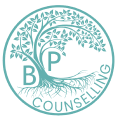Therapy can be a transformative experience, helping us process emotions, navigate challenges, and grow. Whether you’re new to therapy or have been attending sessions for a while, preparing for each session can enhance its effectiveness. Taking some time beforehand to get ready can help you make the most out of your time with your therapist. Here are the top five things you can do before your therapy session to ensure you’re prepared and open for a productive conversation.
1. Reflect on the Past Week (or Time Since Your Last Session)
Before your therapy session, spend a few moments reflecting on what has happened since your last meeting. Ask yourself:
- What emotions have I been feeling most frequently?
- Did any significant events take place that affected my mental or emotional well-being?
- Were there moments where I used the tools or strategies discussed in previous sessions?
It’s easy to forget things when you’re caught up in the moment, so writing down these reflections can help ensure you cover important ground during your session. This reflection not only helps you stay aware of your progress but also gives your therapist a clearer understanding of how you’ve been doing.
2. Identify Key Issues or Topics to Discuss
Therapy is your time, so it’s important to guide it in a way that serves your needs. Think about the key areas of your life where you’re seeking support, and identify specific topics you’d like to focus on. This could be anything from work stress, relationship issues, or personal growth, to feelings of anxiety or self-doubt. While it’s okay to let the conversation flow organically, having some topics in mind helps you stay focused.
Some helpful questions to ask yourself might be:
- What’s been weighing on my mind?
- What patterns or behaviors am I noticing that I want to understand better?
- Are there any unresolved issues from previous sessions?
This level of intentionality can make your session feel more purposeful and targeted.
3. Practice Self-Compassion
It’s common to feel nervous or uncertain before therapy, especially if you’re about to explore difficult emotions. One of the most valuable things you can do before your session is practice self-compassion. Remind yourself that therapy is a judgment-free space where you are allowed to be vulnerable, messy, and human. Therapy is about growth, not perfection.
Take a few moments to acknowledge that it’s okay to feel whatever you’re feeling, even if that’s anxiety, fear, or frustration. Being kind to yourself in this moment creates a mindset of acceptance and openness, which will allow you to be more authentic during the session.
4. Check In with Your Physical and Emotional State
Before your session, take a few deep breaths and check in with your body and mind. How are you feeling physically and emotionally? Sometimes our physical state—hunger, fatigue, or tension—can influence how we show up emotionally.
If you’re feeling frazzled or stressed, try grounding techniques like deep breathing, stretching, or even a short walk before your session. This simple practice can help calm your nervous system, making it easier to engage fully with your therapist. On the other hand, if you’re feeling low energy or emotionally drained, recognize that, and be gentle with yourself.
A brief check-in helps you connect with your body and emotions, so you’re more aware of what’s coming up during the session.
5. Set an Intention for the Session
Lastly, set a personal intention for your therapy session. This doesn’t have to be something huge—it could be as simple as “I want to be honest with myself” or “I want to open up about a specific fear.” Setting an intention can provide clarity, help you stay focused, and ensure that you leave the session feeling more aligned with your goals.
Some examples of intentions could be:
- “I want to be present and honest in this session.”
- “I want to explore my feelings without judgment.”
- “I want to work on understanding my reactions to stress.”
By setting an intention, you create a guidepost for the session, allowing you and your therapist to navigate the conversation with purpose.
Final Thoughts
Therapy is a collaborative process, and being proactive in preparing for your session can help you get the most out of it. Reflecting on your experiences, identifying key topics, practicing self-compassion, tuning into your body, and setting an intention are small but powerful actions that can enhance the quality of your therapy. Remember, therapy is a space for growth, healing, and discovery. With a bit of thoughtful preparation, each session can move you closer to understanding yourself and creating positive change.
Take care and happy healing!
